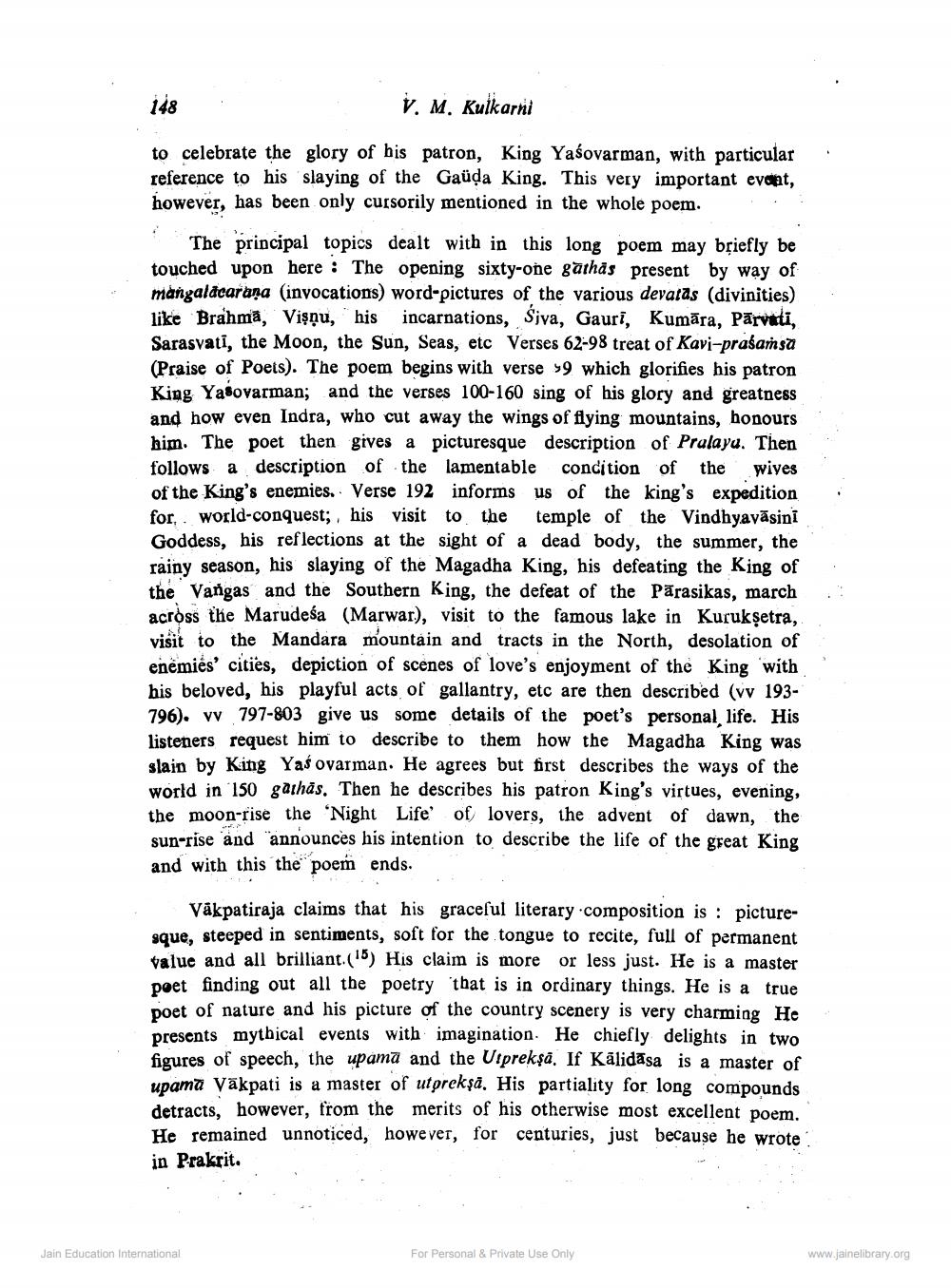________________
148
.
V. M. Kulkarni
:
to celebrate the glory of his patron, King Yaśovarman, with particular reference to his slaying of the Gauda King. This very important event, however, has been only cursorily mentioned in the whole poem.
The principal topics dealt with in this long poem may briefly be touched upon here : The opening sixty-one gathas present by way of mangalicarana (invocations) word-pictures of the various devatas (divinities) like Brahma, Vişņu, "his incarnations, Siva, Gauri, Kumāra, Pārvatī, Sarasvati, the Moon, the Sun, Seas, etc Verses 62-98 treat of Kavi-prašamsa (Praise of Poets). The poem begins with verse »9 which glorifies his patron King Yasovarman; and the verses 100-160 sing of his glory and greatness and how even Indra, who cut away the wings of flying mountains, honours him. The poet then gives a picturesque description of Pralayu. Then follows a description of the lamentable condition of the wives of the King's enemies. Verse 192 informs us of the king's expedition for, world-conquest;, his visit to the temple of the Vindhyavāsini Goddess, his reflections at the sight of a dead body, the summer, the rainy season, his slaying of the Magadha King, his defeating the King of the Vangas and the Southern King, the defeat of the Pārasikas, marchi across the Marudeśa (Marwar), visit to the famous lake in Kuruksetra, visit to the Mandara mountain and tracts in the North, desolation of enemies' cities, depiction of scenes of love's enjoyment of the King with his beloved, his playful acts of gallantry, etc are then described (vv 193796). vv 797-803 give us some details of the poet's personal life. His listeners request him to describe to them how the Magadha King was slain by King Yaś ovarman. He agrees but first describes the ways of the world in 150 gathās. Then he describes his patron King's virtues, evening, the moon-rise the 'Night Life of lovers, the advent of dawn, the sun-rise and announces his intention to describe the life of the great King and with this the poem ends.
Väkpatiraja claims that his graceful literary composition is : picturesque, steeped in sentiments, soft for the tongue to recite, full of permanent value and all brilliant.(15) His claim is more or less just. He is a master poet finding out all the poetry that is in ordinary things. He is a true poet of nature and his picture of the country scenery is very charming He presents mythical events with imagination. He chiefly delights in two figures of speech, the upáma and the Usprekşā, If Kālidāsa is a master of upama Väkpati is a master of utoprekşā. His partiality for long compounds detracts, however, from the merits of his otherwise most excellent poem. He remained unnoticed, however, for centuries, just because he wrote in Prakrit.
Jain Education International
For Personal & Private Use Only
www.jainelibrary.org




